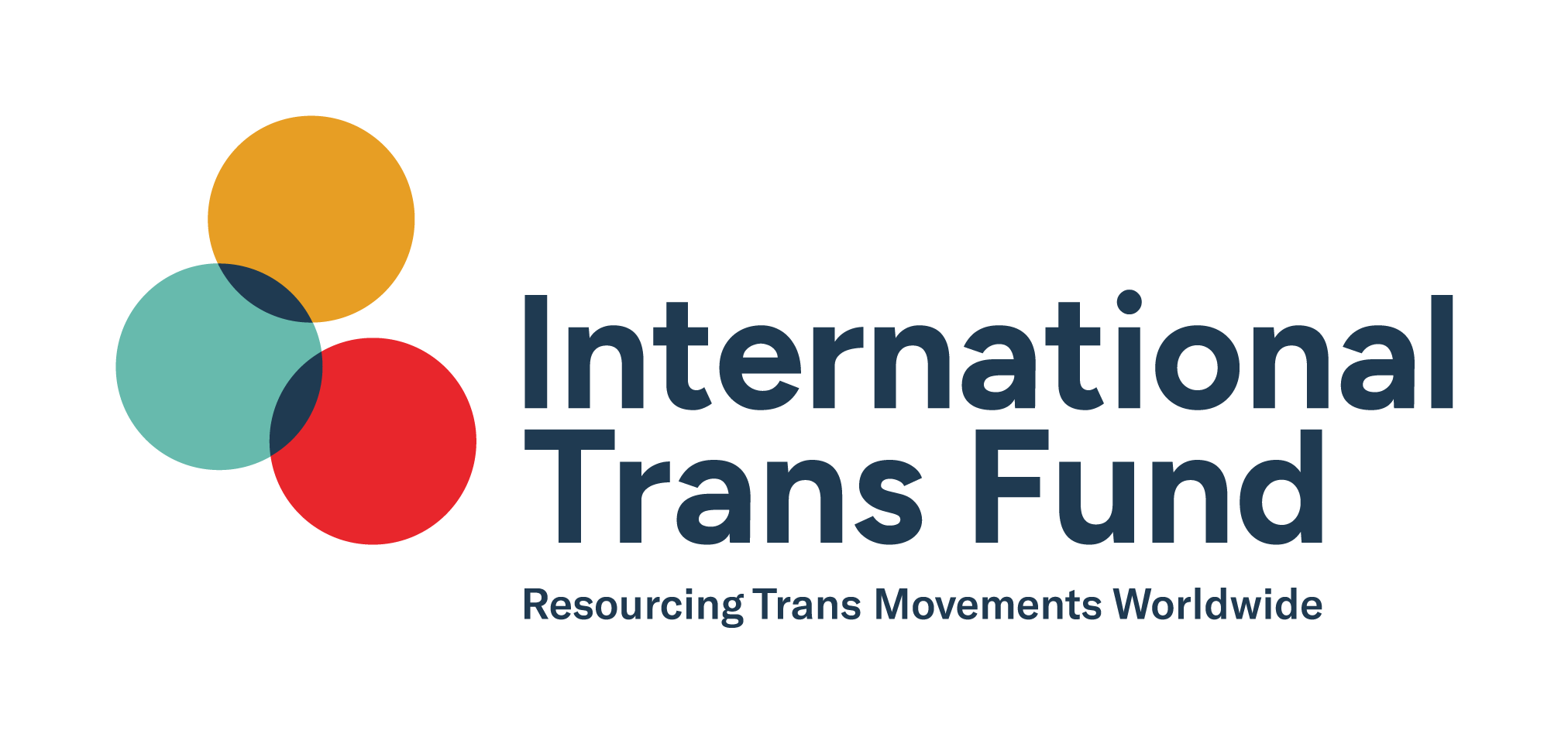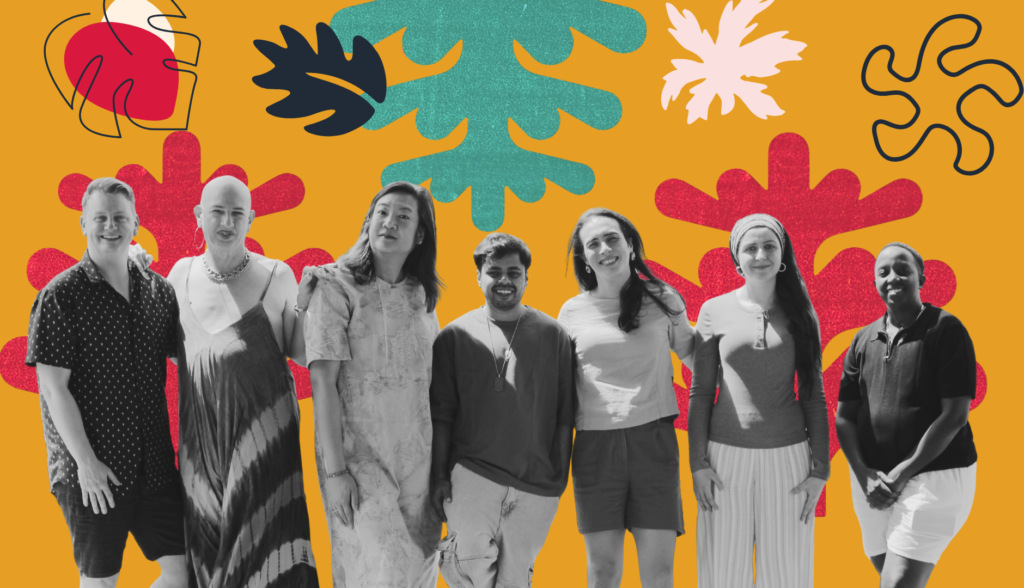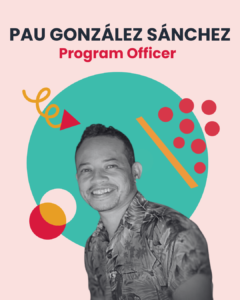Introducing the ITF’s new Board Executive Committee
ITF is thrilled to announce our new Board Executive Committee! We are excited to welcome this leadership team as they step into their roles at a pivotal moment for the organization. Their guidance will be instrumental as ITF continues to grow, evolve, and respond boldly to an increasingly complex global political landscape. The new Executive Committee joins us as we begin shaping and rolling out our 10-year Strategic Framework (2026–2036), helping to steward ITF into its next chapter of resourcing, solidarity, and transfeminist movement building.
Here are our new members!
Meet our Co-Chairs

Ayouba (they/she) is a Moroccan trans and non-binary SOGIESC consultant and activist currently pursuing a degree in Global Development Studies in Norway. Ayouba has been actively involved in building movements for trans communities in the SWANA region, serving as the regional manager of Transat, the first trans-led organization in the region. They co-initiated Nassawiyat, a pioneering organization for LBTQI+ women and non-binary individuals in Morocco, and have held key leadership roles with Pan Africa ILGA as Francophone Coordinator, GNP+ as Morocco Country Focal Point, the African Trans Network (ATN) as a Steering Committee Member, and FRIDA (The Young Feminist Fund) as an Advisor representing SWANA. Passionate about advocacy and knowledge-building, Ayouba is particularly interested in research and initiatives focused on SOGIESC, HIV, decolonial and participatory grantmaking models, and intersectional feminism.
“At a time when anti-gender and anti-rights movements are on the rise, I consider it my duty in this position to assist in channeling resources toward trans and gender diverse movements, where they are most needed and least accessible. As ITF embarks on a new journey of developing and implementing its 10-year strategy for 2026 to 2036, it is crucial that our long-term strategy prioritize flexibility, be considerate of grassroots realities, be rooted in collective care, and be based on the principle that no community member should be left behind.”
– Ayouba

Félix (he/him) is a bilingual creative and philanthropic professional based in Ecuador and NYC. With over 15 years of experience in filmmaking, global philanthropy, and arts administration, he has worked with organizations like the Robert Rauschenberg Foundation and Open Society Foundations. He currently co-chairs the Trans/Intersex Task Force within the Global Philanthropy Project and founded the Trans Affinity Group within the Documentary Producers Alliance, advocating for trans-led storytelling and supporting trans filmmakers with mentorship and resources. Félix has served on numerous selection committees for arts and social justice organizations, including Art for Justice, BlackStar Film Festival, and Creative Capital.
“I’m honored to begin my term as ITF co-chair and serve alongside Ayouba El Hamri. I’m excited to work in close partnership with ITF’s leadership and staff to steward vital resourcing of trans communities worldwide.”
– Felix
Meet our Treasurer and Secretary

Denny (She/They) is a trans advocate from Kenya and a seasoned Finance and Grants Management Consultant with a background in accounting. With experience in feminist funds like FRIDA and UHAI EASHRI, and as a former Grant Making Panelist for ITF, Denny aspires to develop financial and institutional solutions that streamline grants management while championing for increased funding towards ITGNC-led initiatives. Passionate about gender and racial equality, poverty alleviation, and socio-economic justice, Denny is dedicated to fostering the financial sustainability of impactful development programs.
Denny was previously the Board Secretary of ITF.

Dr. Mikee Inton-Campbell (She/Her) is professor of Trans and Queer of Color Studies at California State University San Marcos. She is originally from the Philippines and previously served on the Board of Trustees of the Society of Trans Women of the Philippines (STRAP), and as co-chair of the Trans Steering Committee at ILGA World (2014-2019). She was also previously part of the Grant Making Panel at the ITF. As a transfeminist scholar, her research and teaching are focused on issues of Sexuality and Pleasure, decolonizing transness, global histories of trans and queer social movements, and Sex Work.
Mikee was previously a Co-Chair of ITF.
With Gratitude…
With sincere thanks, we acknowledge our outgoing Board Executives, Mikee Inton-Campbell and Joe Wong (Board Co-Chairs), Liberty Matthyse (Treasurer), and Denny Mwaurah (Company Secretary), for their leadership and service over the past year. Their stewardship during a critical period strengthened ITF’s governance and upheld our participatory and transfeminist values. We are grateful that you will continue your tenure on the Board and carry this work forward.
Their work has seen ITF through a transformative period and helped shape where we are today. We are grateful for everything they have contributed.

















